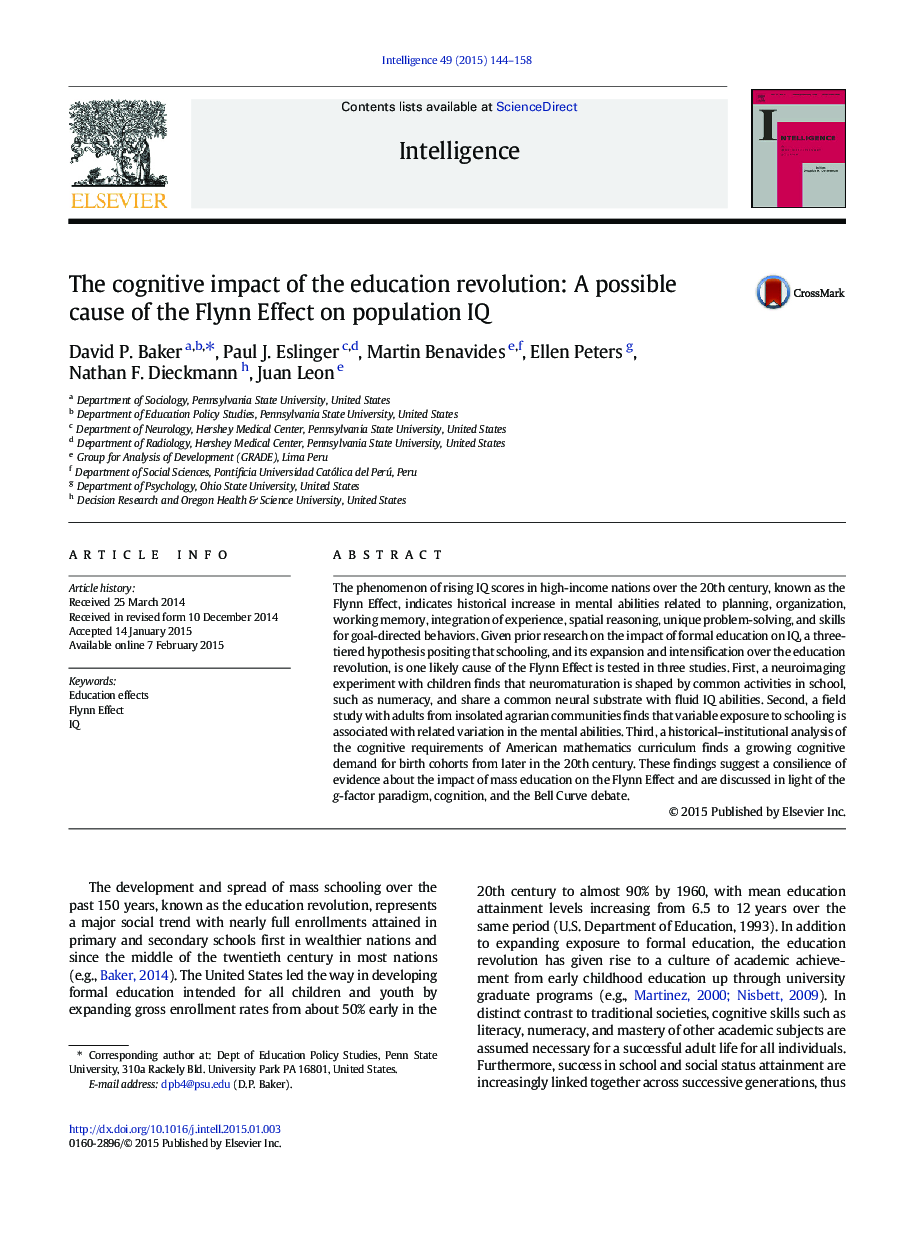| Article ID | Journal | Published Year | Pages | File Type |
|---|---|---|---|---|
| 929036 | Intelligence | 2015 | 15 Pages |
•Is growing exposure to formal education over the 20th century a cause of the Flynn Effect?•Study 1 examined academic numeracy tasks and prefrontal cortex activation among 8–19 year-olds.•Study 2 examined variable exposure to schooling and cognitive executive functioning among subsistence-level farmers.•Study 3 examined the cognitive demand of primary school mathematics textbooks over the 20th century.•Findings suggest that mass education is one cause of the Flynn Effect.
The phenomenon of rising IQ scores in high-income nations over the 20th century, known as the Flynn Effect, indicates historical increase in mental abilities related to planning, organization, working memory, integration of experience, spatial reasoning, unique problem-solving, and skills for goal-directed behaviors. Given prior research on the impact of formal education on IQ, a three-tiered hypothesis positing that schooling, and its expansion and intensification over the education revolution, is one likely cause of the Flynn Effect is tested in three studies. First, a neuroimaging experiment with children finds that neuromaturation is shaped by common activities in school, such as numeracy, and share a common neural substrate with fluid IQ abilities. Second, a field study with adults from insolated agrarian communities finds that variable exposure to schooling is associated with related variation in the mental abilities. Third, a historical–institutional analysis of the cognitive requirements of American mathematics curriculum finds a growing cognitive demand for birth cohorts from later in the 20th century. These findings suggest a consilience of evidence about the impact of mass education on the Flynn Effect and are discussed in light of the g-factor paradigm, cognition, and the Bell Curve debate.
